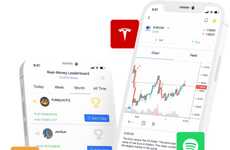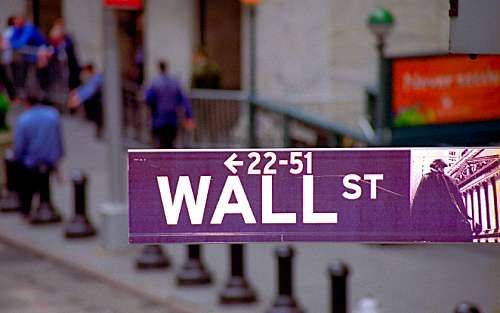
Study Proves That Twitter and Facebook Correlate to Market Performance
Going Like Sixty — March 19, 2011 — Business
References: venturebeat
When you tweet, Wall Street listens. When you Like, Wall Street is watching and aggregates your likes to determine a brand popularity and indicate future stock prices. Using social media to predict a stock price may be the next big thing for anybody looking to make a killing in the stock market.
A doctoral student at Pace University recently did a study using Famecount to test the theory. Can social media habits predict stock prices of big-name companies? Starbucks, Coca Cola and Nike were tracked for 10 months. Based on tweets, Facebook "Likes" and YouTube views, the brand's social media fame was logged against the stock price compared to other consumer stocks. The student proved that there is a correlation. Although stock price didn't go up in Coke's case -- it actually went down -- social media withstood the test as an indicator.
Doubters will note that only a very small number of brands were tracked, but traders are known to take risks on indicators with far less reliability than shown using social media. Rochester Cahan, the vice president of Global Equity Quantitative Strategy at Deutsche Bank, says there is significant improvements for traders when they take into account social media.
A doctoral student at Pace University recently did a study using Famecount to test the theory. Can social media habits predict stock prices of big-name companies? Starbucks, Coca Cola and Nike were tracked for 10 months. Based on tweets, Facebook "Likes" and YouTube views, the brand's social media fame was logged against the stock price compared to other consumer stocks. The student proved that there is a correlation. Although stock price didn't go up in Coke's case -- it actually went down -- social media withstood the test as an indicator.
Doubters will note that only a very small number of brands were tracked, but traders are known to take risks on indicators with far less reliability than shown using social media. Rochester Cahan, the vice president of Global Equity Quantitative Strategy at Deutsche Bank, says there is significant improvements for traders when they take into account social media.
Trend Themes
1. Social Media Predictive Analytics - Using social media data to predict stock prices is a disruptive innovation opportunity for investors.
2. Brand Popularity Tracking - Tracking social media fame against stock prices is a disruptive innovation opportunity for market analysts.
3. Social Media as Market Indicators - Leveraging social media metrics as market indicators is a disruptive innovation opportunity for traders.
Industry Implications
1. Finance - Integrating social media analytics into financial strategies is a disruptive innovation opportunity for the finance industry.
2. Digital Marketing - Using social media metrics to track brand popularity is a disruptive innovation opportunity for the digital marketing industry.
3. Data Science - Developing predictive algorithms based on social media data is a disruptive innovation opportunity for the data science industry.
2.6
Score
Popularity
Activity
Freshness























